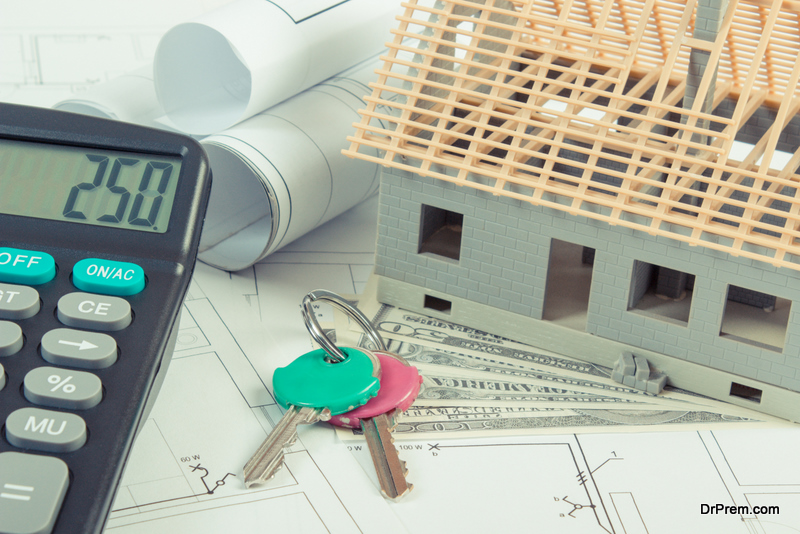Home renovations can be a great way to improve the value and functionality of your home, but they can also be a major financial undertaking. One of the biggest challenges when it comes to renovation projects is staying within your home renovation budget.
However, with a little planning and foresight, you can avoid the common pitfalls that lead to budget overruns. In this blog post, we’ll discuss practical tips and strategies for staying on budget throughout the renovation process. From setting a realistic budget and researching costs to planning for unexpected expenses and phasing in projects. We’ll explain how to keep your home renovation project on track and avoid exceeding your renovation budget.
Set a realistic budget

If you’re asking yourself, “How can I reduce the cost of remodeling?”, the first step towards this goal is to determine how much you can afford to spend on your renovation before you start. Setting a realistic budget for your renovation is essential to avoiding cost overruns.
Here are some important steps you can take to set up a realistic budget:
1. Determine your renovation goals
Identify what you want to achieve with your renovation project, such as increasing your home’s value, improving energy efficiency, or creating more living space.
2. Research costs
Look up the cost of materials and labor for your specific renovation project. Websites like HomeAdvisor or tools like Homescala’s Virtual Estimate report, and Remodeling Magazine’s Cost vs. Value report can be helpful resources for this.
3. Get quotes from contractors
Contact a few contractors and get at least 3 written estimates for your project. Compare the costs and services offered by each contractor.
4. Plan for unexpected expenses
Set aside 10-20% of your home renovation budget for unforeseen costs such as permits, inspections, and any other contingencies that may arise during the renovation process.
5. Prioritize your must-have renovations
Decide which renovations are the most important to you and allocate most of your budget to those projects.
6. Consider phasing in less important projects
If you’re unable to afford all of your desired renovations at once, consider phasing in smaller projects over time to stay within budget.
7. Review your budget regularly
Keep track of your expenses and compare them to your budget on a regular basis to ensure you are sticking to your budget.
By following these steps, you can set a realistic home renovation budget, minimize unexpected expenses and make the most of your available resources.
Make a detailed plan

Develop a detailed plan that includes all the materials, labor, and other costs associated with your home improvement project. Creating a detailed plan for your renovation is an essential step to ensure that your remodeling project stays on budget and on schedule.
Below you will find some steps you can take to make a detailed plan for your project:
1. Create a list of all renovation items
Make a list of all the specific renovation items you want to do, including materials, labor, and any special requirements. This list will be the base for your Scope of Work which is an essential part of any home improvement contract.
2. Make a floor plan
Create a floor plan of your home that includes the current layout, as well as your proposed changes. This will help you visualize your renovation and make sure it meets your needs. There are nice online platforms like SketchUp and Sweet Home 3D that can help you with these tasks.
3. Research building codes
Review the building codes in your area to make sure your renovations comply with local regulations.
4. Hire a contractor or an architect
Hire a contractor or architect to review your plans and provide professional recommendations. For example, you can use HomeAdvisor, Homescala, or Thumbtack to find any of these professionals.
5. Set a timeline
Establish a realistic timeline for your renovation, including a start and completion date, and milestones along the way.
6. Create a budget
Create a budget for your renovation project, including the estimated costs of materials and labor, as well as a contingency fund for unexpected expenses.
7. Develop a communication plan
Develop a communication plan with your contractor or architect to ensure that everyone is on the same page and that the project stays on schedule. For this, you can use the project management tools of Homescala’s Renovation Portal, where you can find home improvement professionals and communicate with them in an easy and time-efficient way.
By following these steps above, you can create a detailed plan for your renovation that takes into account your goals, budget, and timeline. This will help you stay on track and avoid unexpected costs or delays.
How much is too much to spend on a renovation

The amount of money that is “too much” to spend on a renovation can vary depending on multiple factors. Factors that include the budget that the homeowner can afford, the size and scope of the project, the location of the property, and the current real estate market.
As a general rule, it is recommended that homeowners should not spend more than 15-20% of their home’s value on a renovation. For example, if your home is valued at $500,000, you should not spend more than $75,000 to $100,000 on a renovation.
However, in some cases, spending more than 15-20% may be justified. These are cases where renovation is necessary to address major structural or safety issues. Or to make the home more energy-efficient and cost-effective to operate.
How much you should spend on renovating your home can also depend on your home’s condition. If your home is in poor condition, you can spend more on renovation compared to if your home is in average condition.
It is very important to remember that if you want your renovation to result in net new home equity, the total cost of your renovation must be lower than the amount your home’s value increase.
illustration showing what is net new equity from renovation and how to calculate it
Keep in mind that spending more on a renovation doesn’t guarantee a higher return on investment. You should also consider the resale value of the renovation in the area you live. It is important to do your own research. Lastly, you should speak with professionals before making any decisions about your renovation budget.
Get multiple quotes
Get quotes from several contractors to ensure that you are getting the best possible price for your renovation.
Getting multiple quotes from contractors is important for several reasons:
1. Cost Comparison
By getting multiple quotes, you can compare prices and see which contractor offers the best value for your project. This will help you budget your project and ensure that you are getting a fair price for the work being done.
2. Quality Comparison
Different contractors may have different levels of experience and expertise, so getting multiple quotes allows you to compare the quality of work that different contractors can provide.
3. Transparency
Getting multiple quotes from contractors allows you to compare the services offered by different contractors, including the materials they will use, the timeline for completion, and warranties or guarantees.
4. Availability
Contractors’ schedules can vary, so it is important to get multiple quotes to ensure that the contractor you choose can start and complete the project within your desired timeframe.
5. Negotiation power
Having multiple quotes allows you to negotiate better prices and terms with the contractor you choose.
Overall, getting multiple quotes from contractors will help you make a more informed decision when choosing a contractor. This can also help you find the best quality work at the best price.
Prioritize

When doing a renovation, it can be difficult to know where to begin and what to prioritize. The specific home improvement items you should prioritize will depend on your individual situation and goals.
Here are some general guidelines to consider:
1. Safety and functionality
Prioritize any repairs or renovation items that are necessary for the safety and functionality of your home, such as fixing leaky roofs, repairing structural damage, reinforcing railings, or upgrading electrical and plumbing systems.
2. Energy efficiency
Consider making energy-efficient upgrades to your home, such as installing new windows or insulation, which can help lower your energy bills and make your home more comfortable.
3. High-return investments
Consider renovations that will have the highest return on investment (ROI) when it comes time to sell your home, such as kitchen and bathroom remodels, finishing a basement, and landscaping.
4. Personal preferences
Prioritize renovations that are important to you and your family’s lifestyle and enjoyment of your home, such as creating a home office, adding a deck, or building a home gym. However, try to avoid too much personalization of your home improvement project if you plan to put your home for sale anytime soon. For example, try to use neutral colors on the walls, ceilings, and floors, rather than strong colors that you may personally like.
5. Maintenance
Take care of the regular maintenance and upkeep of your home, such as repainting, replacing old appliances, or fixing gutters.
It is important to know that not all renovations will be equal in cost and impact. Therefore, it is essential to set a home renovation budget and plan out your renovation project in a way that will maximize the return on your investment. Suppose you want to find out which renovations in your home will yield the best ROI and calculate the renovation cost. In that case, you can visit Homescala’s Renovation Portal, which can provide you with these details for your home renovation.
Be flexible
Being flexible during a home renovation can help you stay within budget.
Here is how:
1. Prioritizing
Being flexible allows you to prioritize the most important aspects of the renovation and make adjustments to other parts of the project as needed. For example, if you have a limited budget, you may need to choose more affordable materials for some parts of the renovation in order to afford slightly more expensive materials in other areas.
2. Timing
Being flexible with the timing of your renovation can also help you stay within budget. For example, waiting to purchase materials during a sale or taking advantage of off-peak contractor availability can save you money.
3. Change of plans
Being flexible also means being open to changing your plans if unexpected issues arise during the renovation. For example, if you discover that a load-bearing wall needs to be removed, you may need to adjust your plans and budget accordingly.
4. Flexible design
Being open to alternative design solutions can help you save money. For example, instead of using expensive marble countertops, you may opt for granite or quartz. Or using vinyl flooring instead of hardwood.
5. DIY
Being flexible also means being open to doing some of the renovation work yourself, such as painting your walls or even installing hardware, which can save you money on labor costs.
Overall, being flexible during a home renovation allows you to make adjustments as needed in order to stay within your home renovation budget without sacrificing the overall quality and vision of the renovation project.
Track expenses

Tracking expenses for a home renovation is important. It will help you ensure that you stay within your budget and have a clear understanding of where your money is being spent.
Here are some ways you can track expenses for your renovation:
1. Create a budget
As mentioned above, before you begin your renovation, create a detailed budget that includes all expected expenses, such as materials cost, labor cost, permits, and other miscellaneous costs. This will give you a clear understanding of how much money you have to work with and will help you make informed decisions about where to allocate your funds.
2. Keep receipts and invoices
Be sure to keep all receipts and invoices for materials and labor and organize them in a way that makes it easy for you to refer back to them later. This will help you keep track of how much you are spending and will be helpful for tax purposes.
3. Use a spreadsheet or budgeting app
Use a spreadsheet or budgeting app to track your expenses in real-time. This will allow you to see how much you are spending and how much you have left to spend in each category. Some of the options you have are Google Sheets, Excel, or the advanced renovation budgeting tools in the Renovation Portal.
4. Track change order
Keep track of any change orders, which are additional work or materials that were not included in the original contract. These can add up quickly and can cause the budget to go over.
5. Review and adjust
Review your expenses regularly and accommodate your budget as necessary. If you find that you are over budget in one area, you may need to make adjustments in other areas in order to stay on track.
Overall, tracking expenses for your home renovation is an essential step in staying within your budget.
illustration showing percentage of homeowners that have renovation budget and if they stick to it or go over the budget
Avoid changing orders
Changing orders can add high costs to your renovation. Be sure to have a detailed plan and stick to it as much as possible. Change orders are additional work or materials that are not included in the original contract. This can be a significant cause of cost overruns during a home improvement project.
Below are a few important reasons why you should avoid change orders:
1. Cost
Change orders can add high costs to your renovation, as they often require additional materials and labor. These additional home renovation costs can add up quickly and cause your budget to go over.
2. Time
Change orders can also cause delays in the renovation, as they often require additional work and coordination between the contractor and the homeowner. This can cause the renovation to take longer than initially planned and can cause inconvenience to the homeowner.
3. Quality
Change orders can also affect the quality of the renovation, as they can cause disruptions to the original plan and can lead to mistakes and inconsistencies.
4. Risk of disputes
Change orders can also cause disputes between homeowners and contractors. This is because they often require additional payments and can lead to disagreements over the scope of the work and the estimated cost.
5. Lack of planning
Change orders can also be a sign of a lack of planning and preparation before the renovation work begins. It’s important to have a detailed plan and budget and to make sure that everyone involved understands the scope of the work before the renovation starts.
Planning ahead and having a detailed and accurate scope of work before starting a renovation project is essential. This will help to avoid change orders and keep the project on schedule and within your renovation budget. If any changes are needed, it’s best to discuss them with the contractor and see if they can be included in the original contract or if it’s necessary to make a change order.
Be wary of “good deals”

If you want to know what should you not do before renovating, falling for deals that are too good to be true, is one of those things. When doing a home renovation, it’s important to be wary of “good deals” from contractors. They can often lead to issues down the road.
Here are some reasons why you should be cautious:
1. Quality of work
Some contractors may offer low prices because they cut corners on the quality of materials or workmanship. They may use lower-quality materials or not follow proper building codes and safety regulations. This can lead to subpar work and potential safety hazards.
2. Unforeseen costs
Some contractors may offer low prices but then charge very high prices for small work items that are not part of the contract. This can add up quickly and can cause your renovation budget to go over.
3. Lack of proper licenses or insurance
Some contractors may offer low prices because they are not licensed or insured. Hiring an unlicensed contractor can put you at risk of poor-quality work, and it may also void any warranties or guarantees.
4. Lack of experience
Some contractors may offer low prices because they are new to the industry and lack the experience to handle more complex projects. This can lead to mistakes, delays, and higher costs in the long run.
5. Scams
Some contractors may offer low prices but are not legitimate and may take your deposit and run without completing the work.
It’s important to be cautious when considering “good deals” from contractors and to do your due diligence by researching the contractor, checking references, and making sure that they are licensed, insured, and experienced. It’s also important to have a detailed contract and to make sure that any additional costs are clearly outlined and agreed upon before the renovation begins.
Conclusion
Staying within your renovation budget while doing home renovations is important because it ensures that the renovation is completed on time and within your budget. Going over budget can cause delays and financial stress.
A well-defined scope of work will help you make informed decisions about where to allocate your funds and prioritize the most important aspects of the renovation. It also allows you to have a clear understanding of the entire cost of the project, including any unexpected costs that may arise, and plan accordingly. By sticking to your budget, you can ensure that you will be able to complete your renovation projects to your satisfaction and avoid any financial stress or disappointment.
By using Homescala’s Renovation Portal, you can ensure that you stay within your budget because this advanced platform can calculate your renovation costs and tell you which renovations can bring the highest ROI, which will help you prioritize accordingly. You will also get to contact multiple contractors who can provide multiple quotes. You can also find money-saving recommendations as well as discounts on materials, which can be crucial in keeping your renovation within budget.
Article Submitted By Community Writer




